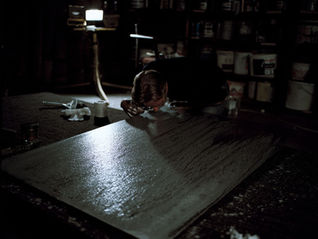

Part II: The glass isn’t half-empty or half-full. It's just complex or simple
In the previous article, I presented the problem of gut instincts and personal preferences in decision-making and argued that we need a...


The glass isn’t half-empty or half-full. It's just complex or simple
Using gut instincts Are you a glass half-empty or half-full kind of person? The question paints optimism and pessimism as a personality...


Ways to be Rationally Complex
Predictability in nature allows complex solutions Surprisingly large parts of our world are simple in the sense that nature’s...


A digital 'New Wild'
The scientific imagination is now profoundly digital in a way that owes much to Turing, Von Nuemann and the first days of scientific...

![How 'complexity' impacts science and art, Science has no borders: Unwrapped! [Event]](https://static.wixstatic.com/media/9b81e2_d0272b794adb49dc8f46579c84c13171~mv2_d_4567_2430_s_4_2.jpg/v1/fill/w_318,h_239,fp_0.50_0.50,q_90,enc_auto/9b81e2_d0272b794adb49dc8f46579c84c13171~mv2_d_4567_2430_s_4_2.jpg)
How 'complexity' impacts science and art, Science has no borders: Unwrapped! [Event]
We were recently presenting at a Science Has no Borders: Unwrapped! (ShnB) interactive event at UCL that was really exciting to be a part of


Novelty all over again
What is novelty? Is there really such a thing as 'novelty' in reality, or does it all depend on your perspective and existing knowledge?...


